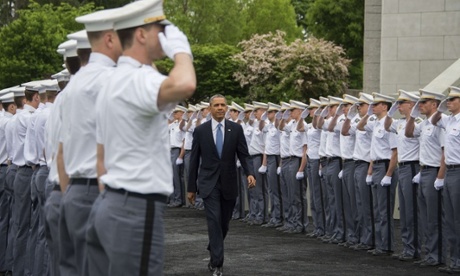Good short interview on The Leaderless Revolution
Steve Adubato had me on his “One on One” show talking about The Leaderless Revolution in 2013. It’s a good short interview on the main ideas of the book.
Politics and the Trust Conundrum (OECD Yearbook)
Rather remarkably, the OECD invited me to write – and then printed! – an article about trust and government. The article can be found here (http://www.oecdobserver.org/news/fullstory.php/aid/4371/Politics_and_the_trust_conundrum.html) and is pasted here.
Politics and the trust conundrum
Carne Ross, Founder and Executive Director, Independent Diplomat
Iraq exposes the west’s hypocrisy in the Middle East: my oped in The Guardian
The Guardian asked me for my views on US military intervention in northern Iraq. I took the chance to propose a new doctrine for western policy in the Middle East. (gu.com/p/4vk68/tw).
Here’s the text:
A friend from Pristina once told me that the happiest day of his life was when he heard Nato cruise missiles over his home town. This was in 1999 when Nato intervened from the air to stop the Serb campaign to drive Albanians from Kosovo. Often military intervention is wrong, but sometimes it is right. It was right in Kosovo, and Libya in 2011, and it is right today in northern Iraq.
Diplomacy, Anarchism and the work of Independent Diplomat: my interview in The World Today
Interview: Carne Ross
August 2014, Volume 70, Number 4
The former Foreign Office high-flyer talks about his new career as a diplomatic entrepreneur, the need to give a voice to the voiceless, and how he helped John le Carré create a fictional whistle-blower
You resigned from the Foreign Office a decade ago over the Iraq war. What is wrong with diplomacy?
US Fingers in the Mangle: my analysis of the Iraq crisis
John Kerry must be cursing the neo-cons. “If you break it, you bought it”, Colin Powell once said. Iraq is spectacularly broken, with civil war on multiple fronts. And the US has no choice but to try to put it back together. Having backed al-Maliki despite his egregiously divisive behavior, it cannot now let him fall and with him any semblance of the state. This is the post-imperial burden Powell predicted (though did nothing to prevent). As the US sends a
Puzzled US foreign policy: Obama at West Point (The Guardian, May 28th)

The Guardian posted this piece by me today reacting to President Obama’s speech on foreign policy at West Point. And the New York Times later quoted the article in a review of (mostly tedious) reaction to the speech. Here’s the article in full:
Through a Telescope, darkly: Esther Dyon’s Artangel Longplayer Letter to me
The Artangel Project and Long Now foundation have collaborated in a project called the Longplayer Letters where various thinkers and activists from different sectors are encouraged to write to each other about their thoughts about the future, a sort of long form debate about the long term. Esther Dyson addressed her letter, No.4 in the series, to me. Here it is:
The Aesthetics of Occupy
Annie Appel will soon publish a wonderful compendium of photographs of the Occupy movement. She kindly invited me to offer an introduction. This is what I wrote:
Begins
Chomsky’s Brief History of Anarchism
The struggle for the common good has a long past.
BY Noam Chomsky
This broad tendency in human development seeks to identify structures of hierarchy, authority and domination that constrain human development, and then subject them to a very reasonable challenge: Justify yourself.
Humans are social beings, and the kind of creature that a person becomes depends crucially on the social, cultural and institutional circumstances of his life.
What makes a beautiful politics? My talk at Eyebeam, “Performing Change”, October 2013
Last October, I was invited to talk about “The Art of Performing Political Innovation” at an event called “Performing Change” at the Eyebeam Arts Center in New York City, at the invitation of the Italian artist Paolo Cirio (thank you, Paolo). Although the video is over 50 minutes, my talks is at the beginning and lasts about 15 minutes. I try to identify the common features of great art and great politics. What makes beautiful politics?
